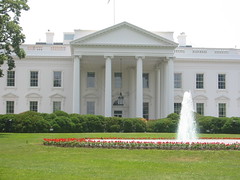| 5188680056 | Northwest Ordinance of 1787 | Created the Northwest Territory (area north of the Ohio River and west of Pennsylvania), established conditions for self-government and statehood, included a Bill of Rights, and permanently prohibited slavery |  | 0 |
| 5188680057 | Lexington and Concord | April 8, 1775: Gage leads 700 soldiers to confiscate colonial weapons and arrest Adam, and Hancock; April 19, 1775: 70 armed militia face British at Lexington (shot heard around the world); British retreat to Boston, suffer nearly 300 casualties along the way (Concord) |  | 1 |
| 5188680058 | Battle of Saratoga | (1777) Turning point of the American Revolution. It was very important because it convinced the French to give the U.S. military support. It lifted American spirits, ended the British threat in New England by taking control of the Hudson River, and, most importantly, showed the French that the Americans had the potential to beat their enemy, Great Britain. |  | 2 |
| 5188680059 | Battle of Yorktown | Last major battle of the Revolutionary War. Cornwallis and his troops were trapped in the Chesapeake Bay by the French fleet. He was sandwiched between the French navy and the American army. He surrendered October 19, 1781. |  | 3 |
| 5188680060 | Articles of Confederation | A plan devised by the Continental Congress in November 1777 for forming the national government as a loose confederation of states. The plan did not provide for an executive or national judiciary and instead relied on a congress. The effort to protect Revolutionary principles such as taxation by direct representation made the central government very weak. |  | 4 |
| 5188680061 | unicameral legislature | A legislature with only one legislative chamber, as opposed to a bicameral (two-chamber) legislature, such as the U.S. Congress. |  | 5 |
| 5188680062 | Treaty of Paris 1783 | This treaty ended the Revolutionary War, recognized the independence of the American colonies, and granted the colonies the territory from the southern border of Canada to the northern border of Florida, and from the Atlantic coast to the Mississippi River |  | 6 |
| 5188680063 | Shay's Rebellion | this conflict in Massachusetts caused many to criticize the Articles of Confederation and admit the weak central government was not working; uprising led by Daniel Shays in an effort to prevent courts from foreclosing on the farms of those who could not pay the taxes |  | 7 |
| 5188680064 | Federalists | Constitution supporters, they argued that the government of the Constitution would correct the defects of the Articles, and the power to forge a secure and prosperous union |  | 8 |
| 5188680065 | Anti-Federalists | a group that rose up as the opponents of the Constitution during the period of ratification. They opposed the Constitution's powerful centralized government, arguing that the Constitution gave too much political, economic, and military control. They instead advocated a decentralized governmental structure that granted most power to the states |  | 9 |
| 5188680066 | The Federalist Papers | A series of eighty-five essays by James Madison, Alexander Hamilton, and John Jay that argued for the ratification of the Constitution. These essays suggested that the three separate branches of government (legislative, executive, and judicial) would prevent any one branch from becoming too powerful. The essays were largely successful at convincing skeptical delegates to ratify the Constitution (although the promised Bill of Rights helped too!). |  | 10 |
| 5188680067 | Constitutional Convention | A meeting held in 1787 to consider changes to the Articles of Confederation; resulted in the drafting of the Constitution. |  | 11 |
| 5188680068 | checks and balances | structure that gives each of the three branches of government some degree of oversight and control over the actions of the others creating a mixed government |  | 12 |
| 5188680069 | Great Compromise | A compromise that proposed two houses of Congress; one where a state's population would determine representation and another where all states were represented equally |  | 13 |
| 5188680070 | Congress | Another name for the Legislative branch for the US federal government: it includes the Senate and the House of Representatives. |  | 14 |
| 5188680071 | Three-fifths Compromise | Agreement reached at the Constitutional Convention stipulating that each slave was to be counted as three-fifths of a person for purposes of determining population for representation in the U.S. House of Representatives. |  | 15 |
| 5188680072 | legislative branch | Branch of Gov't charged with creation of new laws. |  | 16 |
| 5188680073 | executive branch | A branch of government - It carries out and enforces the law. |  | 17 |
| 5188680074 | judicial branch | Branch that judges the laws - Supreme Court - Judiciary Act of 1789 - interprets the law |  | 18 |
| 5188680075 | Democratic-Republican | Led by Thomas Jefferson, believed people should have political power, favored strong STATE governments, emphasized agriculture, strict interpretation of the Constitution, pro-French, opposed National Bank |  | 19 |
America's History Chapter 6 Flashcards
Primary tabs
Need Help?
We hope your visit has been a productive one. If you're having any problems, or would like to give some feedback, we'd love to hear from you.
For general help, questions, and suggestions, try our dedicated support forums.
If you need to contact the Course-Notes.Org web experience team, please use our contact form.
Need Notes?
While we strive to provide the most comprehensive notes for as many high school textbooks as possible, there are certainly going to be some that we miss. Drop us a note and let us know which textbooks you need. Be sure to include which edition of the textbook you are using! If we see enough demand, we'll do whatever we can to get those notes up on the site for you!

